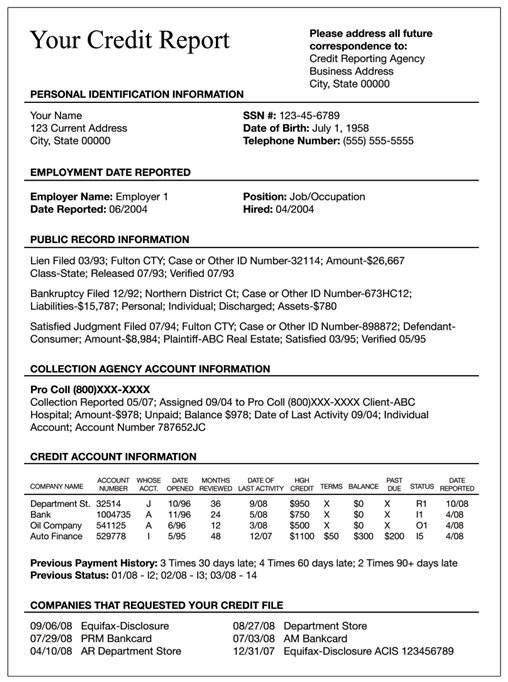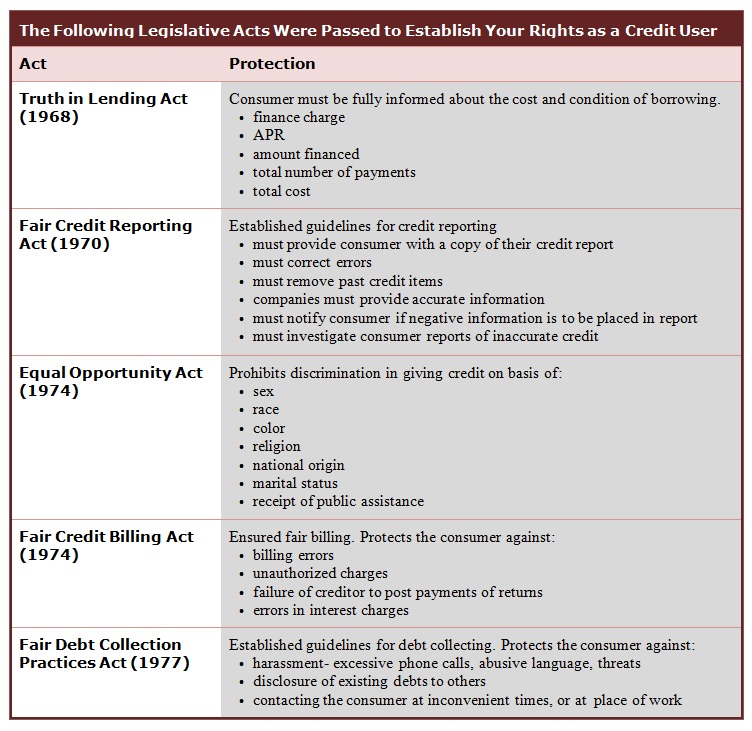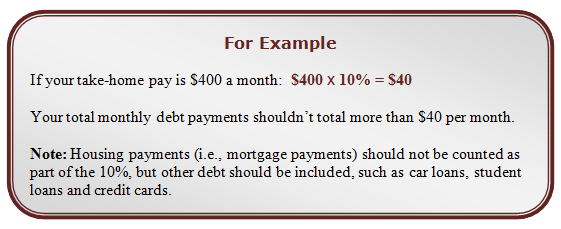USING CREDIT WISELY– CREDIT HISTORY
Unit Overview
In this unit, the student will learn about credit and how to build a good credit history.
Building a Credit History
You will begin building a credit history when you are eighteen. A credit history is a record of your personal financial transactions. It is available to lenders in the form of a credit report, which contains information on how well you’ve managed credit in the past. This report lists any loans you may have as well as your credit card activity and payment history. Using information from the three major credit reporting agencies, a company called FICO generates credit or FICO scores that predict the ability of borrowers to repay debt. Depending on the source, scores range from about 300 to 850. The higher your score, the better your credit rating is. A score of 680 or above is considered good. There are three main credit reporting agencies in the United States – Equifax, Experian, and TransUnion. You are entitled to one free copy of your credit report every 12 months from each of the three agencies.
Equifax 800-685-1111 |
|
 |
Experian 888-397-3742 |
 |
TransUnion 800-916-8800 |
Visit the web site www.annualcreditreport.com. to access the different agencies.
Sample Credit Report
 |
Why Should You Care About Your Credit History?
A good credit rating will guarantee that you can borrow money for major purchases, such as buying a house, getting a car or paying for college. A poor credit rating will prevent you from borrowing the money. Bankers, apartment managers, insurance agents and even some employers will review your credit report and make decisions based on this information. Your score could prevent you from obtaining the job, apartment or home you want.
![]() Establishing Good Credit (03:59)
Establishing Good Credit (03:59)
For a Good Credit Score
- Pay your bills on time – lenders will know you are responsible
- Open a savings account and make regular deposits – lenders look favorably on the ability to save money
- Open a checking account and don’t bounce checks.
- Limit the number of credit cards you have. Too many cards (especially if they all carry a balance) indicate that you are spending above your ability to pay.
- Pay off your balances or at least keep them low. A high debt-to-credit limit ratio will result in a lower score.
- Maintain a favorable credit rating over a long period of time. Longevity results in a higher score.
- When you are ready to apply for credit:
- Apply for a local store credit card and make regular monthly payments.
- Apply for a small loan using your savings account as collateral.
- Get a co-signer on a loan and pay back the loan as agreed.
A poor credit history is a serious liability. It could prevent you from buying a car or a home one day. Keep track of your credit history. Check your credit report. If there are mistakes, take the steps necessary to correct them. If you have not used credit wisely and the result is a low score, turn things around. It will take effort and determination to curb your spending habits, but it is well worth it.
Answer Assessment questions 1-7.
Read PDF document Take Control of Your Credit Score.
Based on the information presented in Take Control of Your Credit Score, answer Assessment questions 8-20.
Your Credit Rights and Responsibilities
 |
You Also Have Responsibilities Regarding the Use of Credit:
1. Borrow only what you can repay.
- Never borrow more than 20% of your yearly net income

- Monthly payments shouldn’t exceed 10% of your monthly net income

2. Make sure you thoroughly read and understand any credit contract.
3. Pay your debts on time.
4. Notify the creditor if for some reason, you can not make your payments.
5. Report lost or stolen credit cards promptly.
6. Never give your card number over the phone unless you initiated the call or are certain of the caller’s identity.
![]() Take Notices Seriously (02:35)
Take Notices Seriously (02:35)
Answer Assessment questions 21-25.
Now it is time to do a little research on your own. Do an Internet search about Credit History. For Assessment question 26,read an article and type a summary of what you found. List the keyword you used to conduct your search and the URL of the article you read so your teacher can review your information. Enjoy your Internet surfing!!
